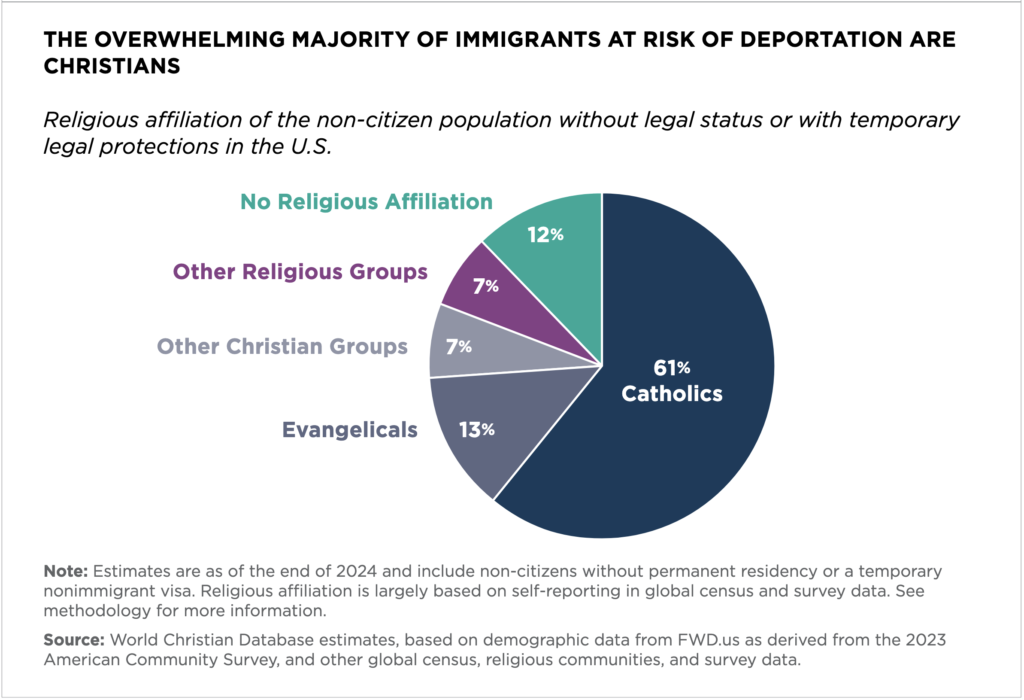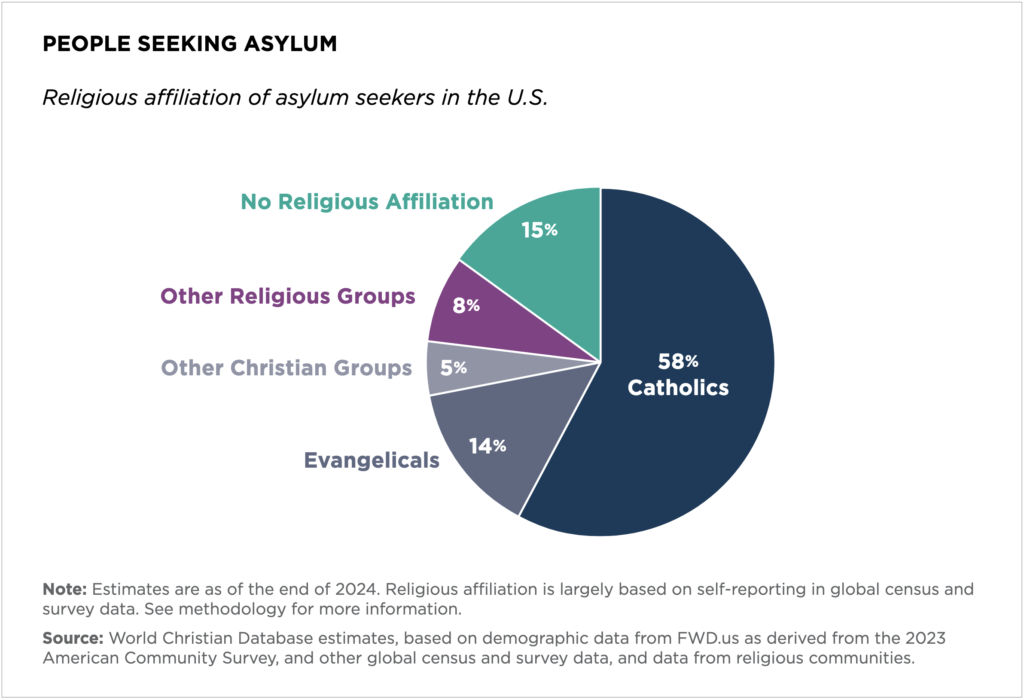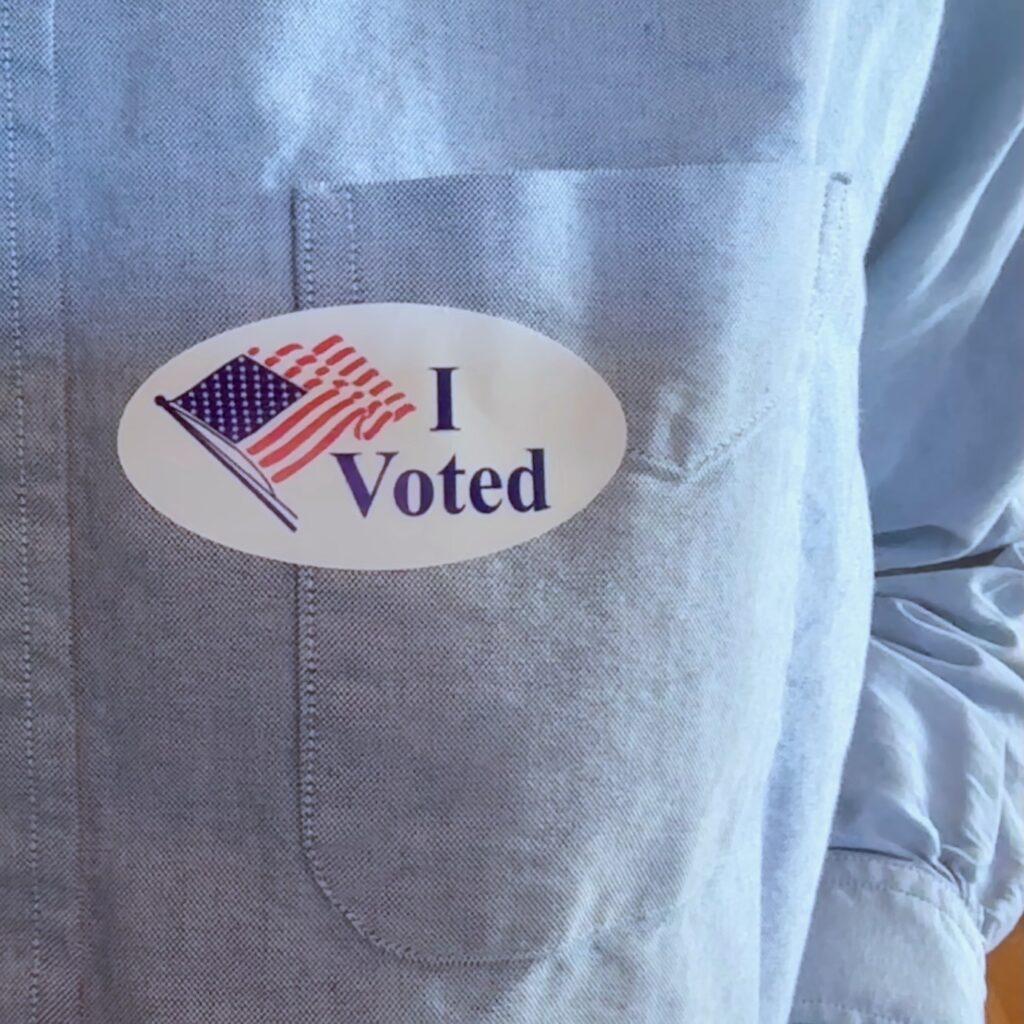The National Association of Evangelicals (NAE), the U.S. Conference of Catholic Bishops (USCCB), World Relief, and the Center for the Study of Global Christianity have released a report about the impact of the Trump administration’s proposed deportations on American Christian communities. I found the report, titled “One Part of the Body: The Potential Impact of Deportations on American Christian Families” available online on the USCCB website (link to the PDF).
According to their report, the majority of people subject to deportation are Christian. You can go to the actual report to read their methodology, but to give you a quickie summary, here’s a screen shot of a relevant pie chart taken from the report:

An article about this report by Religion News Service (RNS) points out that U.S. vice-president J.D. Vance is Catholic. According to RNS, Vance does not agree with previous statements by Catholic bishops that deportations pose any problems. But the real question is how many American Christians will see this as a problem. RNS interviewed Anthea Butler, a professor of religious studies and an astute commentator on American religion. Butler thinks this report could serve to alert Catholic leaders to a major problem facing them, saying, “For Catholic parishes, for Catholic ministries, this is a disaster.” According to the report, 18% of U.S. Catholics are at risk of deportation, implying that perhaps one in five U.S. Catholics are either at risk of being deported, or at risk of of having a family member being deported.
Looking at the religious affiliations of people seeking asylum in the United States, the report concludes that more than three quarters of asylum seekers are are Christians. Of those Christians, 58% are Catholics.

Will reports like this sway the current administration? I doubt it. More importantly, will reports like this sway the majority of the electorate who elected the Trump administration? Well, reports like this are designed by members of the professional-managerial class to affect others in the professional-managerial class — so perhaps this report will influence some Trump voters who are both Christians and who belong to the managerial-professional class.
But honestly — I don’t see reports like this having an effect on voters who don’t belong to the professional-managerial class. Instead, if you really want to influence a broad range of people, you tell stories. So maybe this report will have some impact if it convinces story-tellers to tell about Catholics and Evangelicals, people leading good and moral lives, who got deported.

